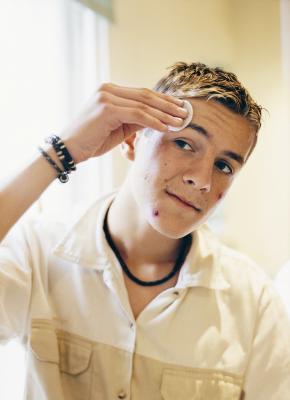Search Results for: additionally referred
Children With Special Needs: Tantrum Management
How do you deal with the sometimes colossal tantrums of your child with autism? What about the mild tantrums? Are you able to recognize the buildup before a tantrum? Can you predict a tantrum? For example, if you know the news you are about to give your child is not going to be well-received, do you cringe in anticipation of an oncoming tantrum?
When the Bough Breaks: Ending the Stigma, Shame and Silence of Postpartum Mood Disorders
Contrary to the popular belief that pregnancy is a biologically protective and emotionally joyful time, women are actually quite vulnerable to a spectrum of psychiatric disorders throughout the perinatal period – the time around pregnancy and postpartum. This range of disorders, more commonly referred to under the umbrella term of postpartum depression, is more accurately reflected by the terms postpartum or perinatal mood and anxiety disorders (PMADs). In fact, 1 in 7 women who become pregnant will experience a mental health disorder during the course of their pregnancy or in the postpartum period, making PMADs the most common complication of childbirth. Additionally, 50% of women diagnosed with PMADs postpartum had an onset of their symptoms during pregnancy.
Mom’s Guide to a Good Night’s Sleep
When was the last time you got a good night’s sleep? Got your attention yet? Sleep is the one thing moms want – and NEED – more of! The average American woman gets only 6.5 hours of sleep a night. That’s much less than needed. ModernMom got a chance to interview Dr. Donnica Moore about ways you can improve your sleeping habits so you get more Zzz’s and less hazy days. MM: Can you reveal the truth about some common sleep myths?
Surgery for Acne Scars
Approximately 40 to 50 million Americans suffer from acne, according to 2009 information from the American Academy of Dermatology (AAD). Additionally, each year, 85 percent of U.S. teenagers will have acne an breakout. Most cases of acne are mild and you can effectively treat them with readily available over-the-counter medications. Moderate to serious acne cases typically require professional medical intervention and sometimes result in unsightly scars. Contemporary surgical techniques can help diminish the appearance of acne scars.
Toddler Sleep Training
Getting your toddler to settle down for a night of sleep presents a challenge for many parents. While sleeping may seem like an instinctive skill that your child should develop naturally, in truth, sleep training is often required to produce a toddler who is able to sleep all night. If you are desperate to improve the length and quality of your child’s nightly slumber, a few basic sleep training activities will provide her with the skills needed to sleep with success.




